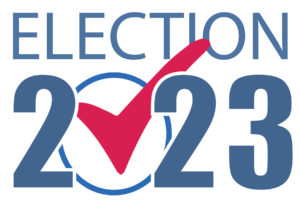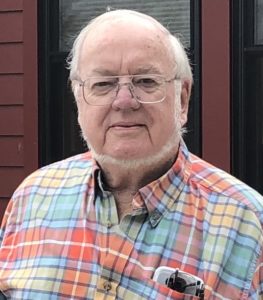By QUINTON SMITH/YachatsNews
One year after approving a new, larger tax levy for the Yachats Rural Fire Protection District, voters in the district now face the decision of whether to renew a second but much smaller one.
The fire district is asking voters to approve – and renew — a tax levy of 61 cents per $1,000 assessed property value in the Nov. 7 special election. It’s a levy the district has relied on since 1999 to help fund yearly operations. It was last renewed in May 2019.
 The Lincoln County clerk’s office mailed ballots to 2,969 registered voters in the Yachats fire district, which stretches from the south edge of Waldport in the north, down along U.S. Highway 101 through the city of Yachats, east up the Yachats River valley, and then south just past Cape Perpetua.
The Lincoln County clerk’s office mailed ballots to 2,969 registered voters in the Yachats fire district, which stretches from the south edge of Waldport in the north, down along U.S. Highway 101 through the city of Yachats, east up the Yachats River valley, and then south just past Cape Perpetua.
Ballots must be returned by 8 p.m. Nov. 7 to be counted.
The 61-cent levy is one of three sources of taxes the district uses to fund operations and a 2023-24 general fund budget of just under $2 million.
The other two are:
- A permanent tax base of 28 cents per $1,000 assessed property value.
- A tax levy of $1.59 per $1,000 that voters approved last November on the district’s second try. It took effect July 1 and replaced a 59 cent levy that was no longer adequate to meet some of the district’s operating costs.
Property tax payers in the district – bills arrived this week — are now seeing the effect of that vote with taxes increasing 11 percent in the Yachats area. Most areas of Lincoln County saw increases of 3 percent to 4 percent, according to the county assessor’s office.
The Yachats fire district also has a voter-approved bond of 68 cents per $1,000 used to build its new fire station on the north edge of Yachats, but proceeds from that cannot be used for year-to-year operations.
The 61 cent levy is due to expire next June. If voters agree to renew it, the district estimates it would generate $405,000 in fiscal 2024-25 rising over five years to $465,000 in 2028-29. If approved, the 61 cent levy would cost the owner of property assessed at $300,000 some $183 a year.
Passage of the $1.59 levy last year – combined with the current 61 cent levy — gets the district out of having to take out bank loans to make ends meet during the spring and summer before property tax revenue arrives in November. It had been forced into that practice since 2019 after a series of financial missteps and rising costs.
The district used $300,000 of its bank line of credit this summer and fall and will pay it back once property taxes begin arriving in November.
Layoffs or try again?
In a county voters pamphlet statement, board treasurer Ed Hallahan said the district would have to consider laying off some of its six firefighter/paramedics if the levy fails.
But the district can ask voters again in March or May, should this levy attempt fail, before laying off personnel. The district also has two administrators and a part-time clerk.

Despite constantly rising costs, Hallahan said the district has never asked for an increase in the 61 cent levy since it was first approved 24 years ago. That, in part, was the reason to ask for the $1 increase in the former 59 cent levy a year ago – the district was unable to keep up with inflation and rising costs that led to the yearly bank loans.
“Should we have asked for an increase sooner? Probably so,” Hallahan said. “But there was always something that came up that stopped us.”
Personnel costs – everything from pay to health insurance to retirement expenses — account for just over half of the district’s 2023-24 budget. After adjusting its pay scale a year ago, firefighters received an 8.1 percent pay increase last December – all to help retain and recruit personnel in high demand from larger organizations elsewhere in Oregon.
“You have to be competitive in this market, especially for firefighter/paramedics,” said board member Drew Tracy, adding that the majority of the district’s calls involve its staffing of the South Lincoln Ambulance service.
With the passage of the larger levy last year and renewal of the current request, the district should have a yearly cash carryover that most all other local governments use to smooth out the flow of property taxes during the year.
That should allow it to begin building up an equipment replacement fund, board members say, which needs major infusion of money before the district needs to replace its existing response vehicles.
“We haven’t had the resources in the past to do more than a year-to-year financial plan,” Hallahan said.




I hope others in Yachats feel the same way I do — this fire department is taxing us to death. My taxes for them is 20 percent of my entire tax bill. Enough is enough.
Why would they lay off firefighters if it fails. Shouldn’t they lay off administrators?
Correction…the Measure 21-219 Yachats Rural Fire Protection District ballot “Explanatory Statement” from Edward T. Hallahan states…
“…fund the current career Firefighters…”, and
“Maintain the current staffing of 6 career firefighters.”
It makes no mention of “paramedics”, etc., as stated in this report.
This brings up a salient issue in our fire department…why are the firefighters that we are funding through our taxes not available when there is an actual fire sometimes? Because they double as ambulance/EMT/paramedics and, thus, wear two hats, forcing members of a neighboring, much further away, fire departments to respond to that call.
I don’t want to fund the ambulance service, that’s not what this balllot measure is calling for. I believe the ambulance business is a separate entity that should rent space from the Yachats Fire Dept. and provide their own staff, leaving our tax dollars and firefighters available for fires and fire related activities for the taxpayers…First!!
…there is mention of the threat of loss of “Ambulance Service” in the statement.